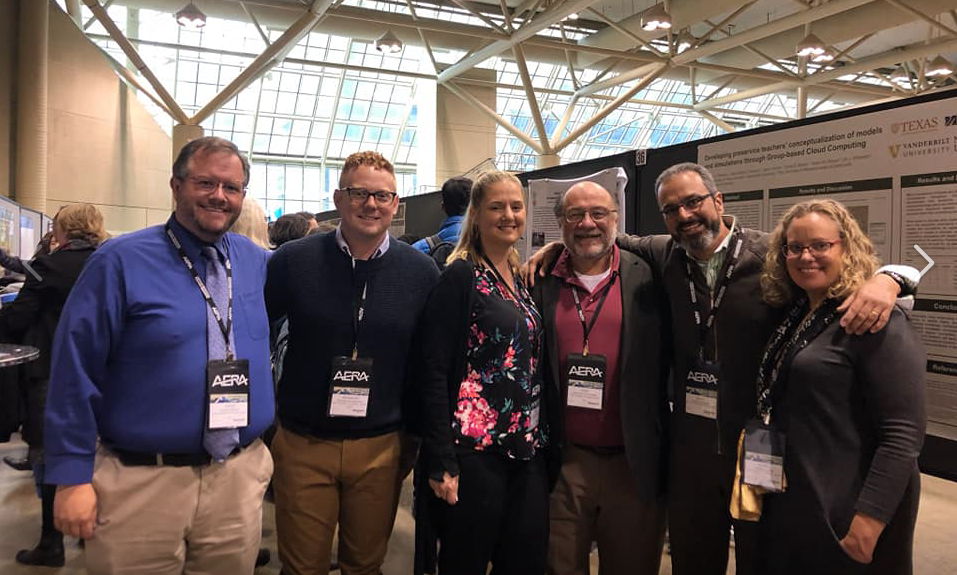The American Educational Research Association 2019 conference was held in Toronto, Canada this April. The Group-based Cloud Computing for STEM Education grant presented a poster on Friday, April 5th, at the poster session titled Advanced Technologies for Learning.
The poster presented was titled Developing Preservice Teachers’ Conceptualization of Models and Simulations through Group-based Cloud Computing and explored the GbCC Yellowstone models that were used with the Elementary Science Methods course the previous Spring.
A computer with the Yellowstone models was available at the poster for participants to engage with, as well as information or how to find and use their own GbCC models in their classrooms or research.
Models used at the Conference and with Preservice Teachers:
Presentation 1:
Petrosino, A. J., Sherard, M. K., Harron, J. R., Brady, C. E., Stroup, W. M., & Wilensky, U. J. (2019, April). Developing preservice teachers’ conceptualization of models and simulations through group-based cloud computing. Poster session presented at the American Education Research Association Annual Meeting, Toronto, Canada.
ABSTRACT: In this exploratory study, preservice teachers use Group-based Cloud Computing (GbCC) to engage in simulations about the reintroduction of wolves to Yellowstone. Participants developed concept maps and defined models and simulations before and after using GbCC. Findings include that through the intervention, participants moved from linear representations of concept maps towards more complex system-based representations. Although participants were able to articulate changes that they would like to make to the agent-based model, their limited programming knowledge was a barrier that prevented participants from implementing changes. In addition, misconceptions were uncovered regarding participants' definitions and uses for models and simulations.This research better informs how authorable agent-based models can help preservice teachers develop a deeper conceptual understanding of non-linear complex systems.

